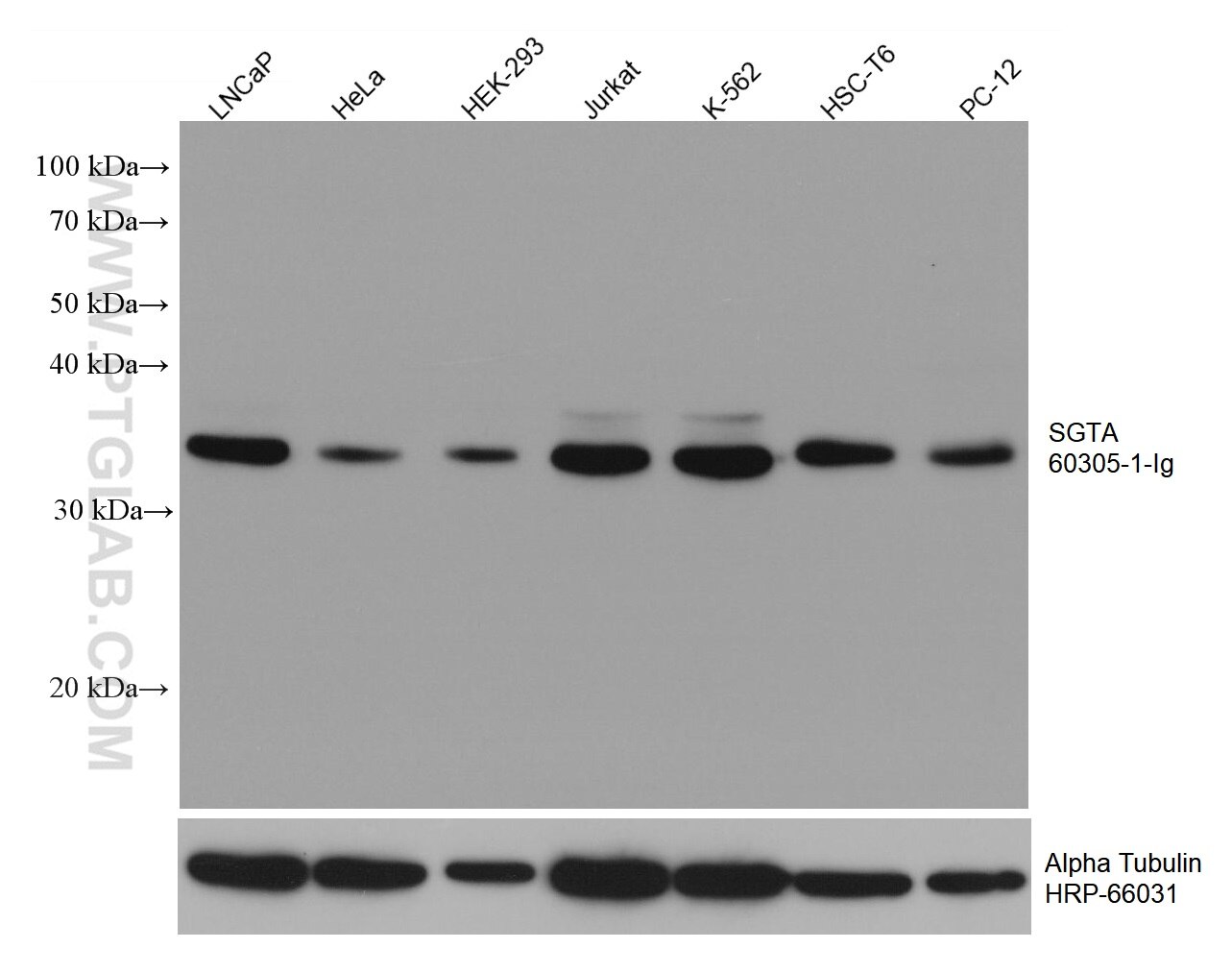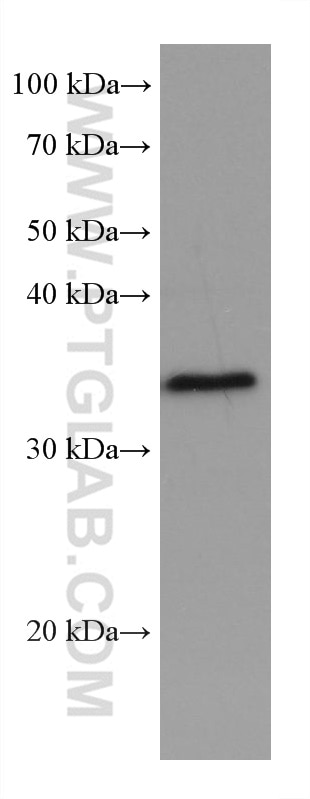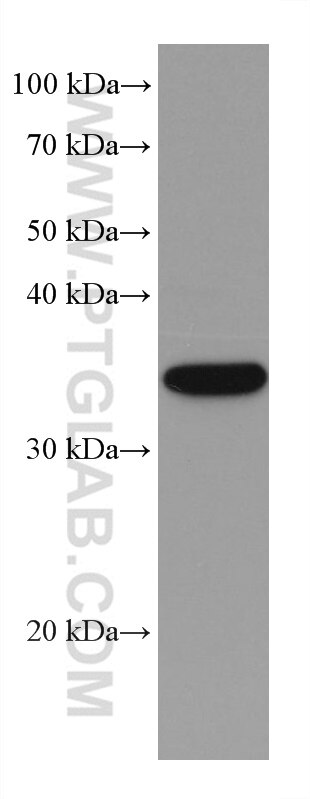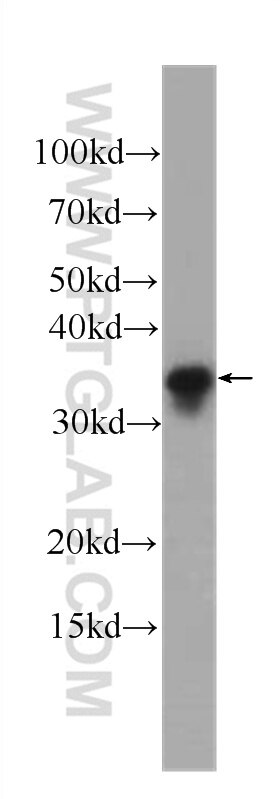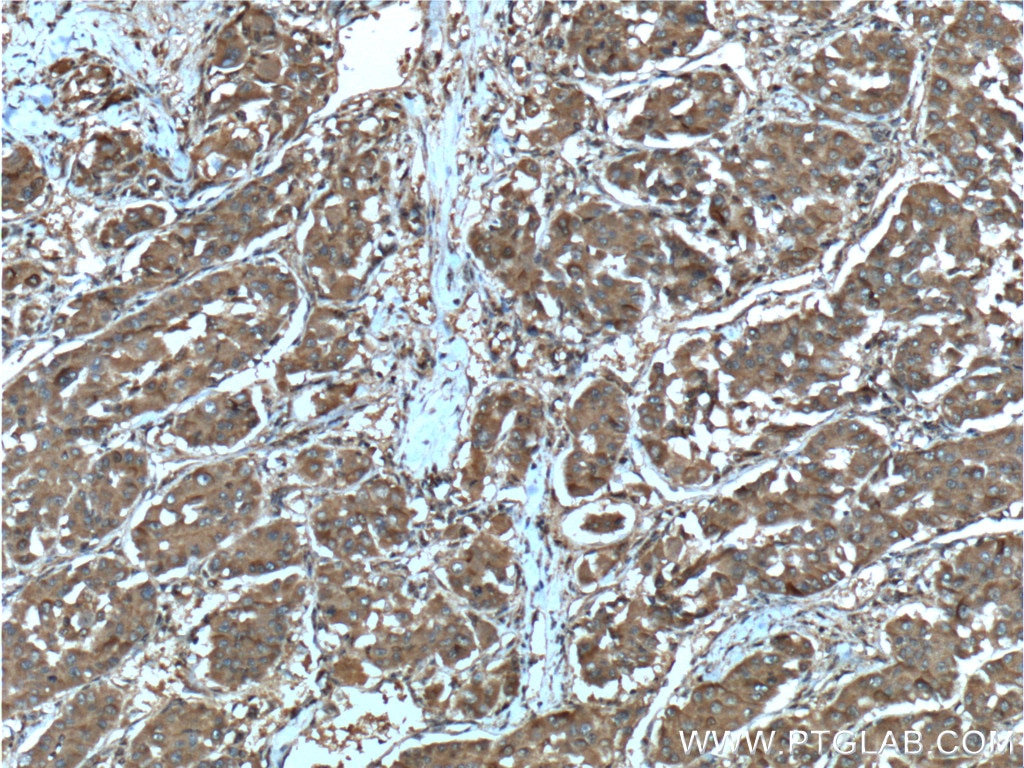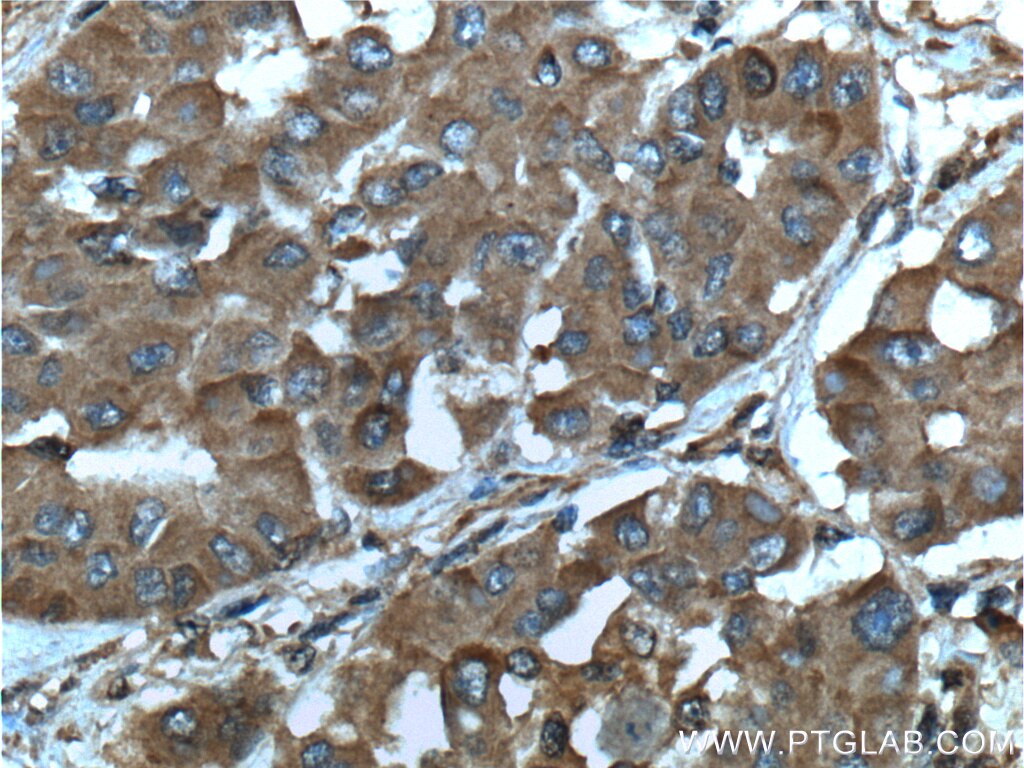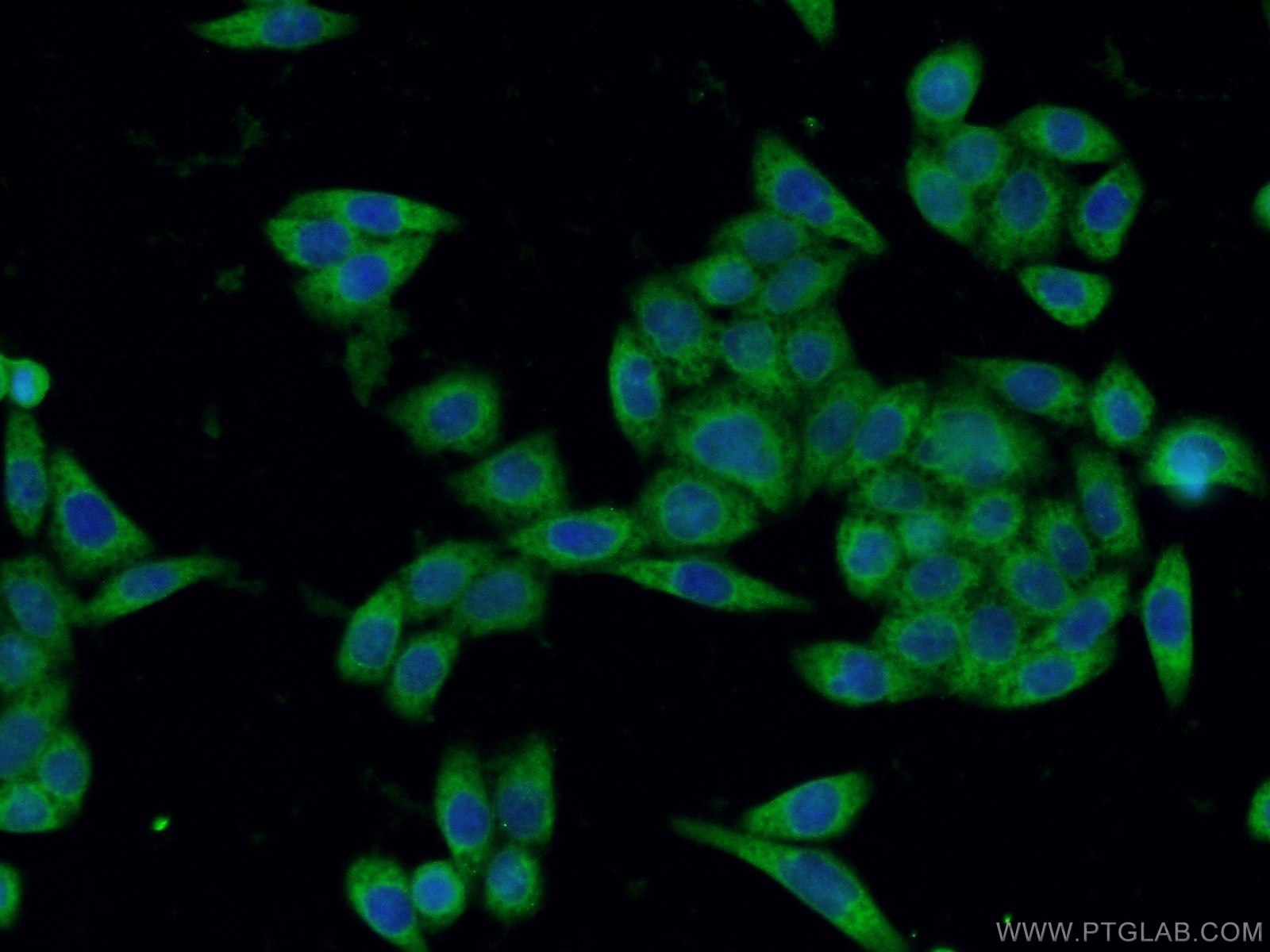SGTA Monoclonal antibody
SGTA Monoclonal Antibody for WB, IF, IHC, ELISA
Host / Isotype
Mouse / IgG2b
Reactivity
human, mouse, rat
Applications
WB, IF, IHC, ELISA
Conjugate
Unconjugated
CloneNo.
3B10B11
Cat no : 60305-1-Ig
Synonyms
Validation Data Gallery
Tested Applications
| Positive WB detected in | LNCaP cells, fetal human brain tissue, NIH/3T3 cells, Neuro-2a cells, HeLa cells, HEK-293 cells, Jurkat cells, K-562 cells, HSC-T6 cells, PC-12 cells |
| Positive IHC detected in | human liver cancer tissue Note: suggested antigen retrieval with TE buffer pH 9.0; (*) Alternatively, antigen retrieval may be performed with citrate buffer pH 6.0 |
| Positive IF detected in | HeLa cells |
Recommended dilution
| Application | Dilution |
|---|---|
| Western Blot (WB) | WB : 1:5000-1:50000 |
| Immunohistochemistry (IHC) | IHC : 1:20-1:200 |
| Immunofluorescence (IF) | IF : 1:20-1:200 |
| It is recommended that this reagent should be titrated in each testing system to obtain optimal results. | |
| Sample-dependent, Check data in validation data gallery. | |
Product Information
60305-1-Ig targets SGTA in WB, IF, IHC, ELISA applications and shows reactivity with human, mouse, rat samples.
| Tested Reactivity | human, mouse, rat |
| Host / Isotype | Mouse / IgG2b |
| Class | Monoclonal |
| Type | Antibody |
| Immunogen | SGTA fusion protein Ag1475 |
| Full Name | small glutamine-rich tetratricopeptide repeat (TPR)-containing, alpha |
| Calculated Molecular Weight | 34 kDa |
| Observed Molecular Weight | 34-37 kDa |
| GenBank Accession Number | BC008885 |
| Gene Symbol | SGTA |
| Gene ID (NCBI) | 6449 |
| RRID | AB_2881419 |
| Conjugate | Unconjugated |
| Form | Liquid |
| Purification Method | Protein A purification |
| Storage Buffer | PBS with 0.02% sodium azide and 50% glycerol pH 7.3. |
| Storage Conditions | Store at -20°C. Stable for one year after shipment. Aliquoting is unnecessary for -20oC storage. 20ul sizes contain 0.1% BSA. |
Background Information
Small glutamine-rich tetratricopeptide repeat-containing protein alpha (SGTA) is a steroid receptor molecular co-chaperone critical in a range of biological processes, including viral infection, cell division, mitosis, and cell cycle checkpoint activation. Overexpression of SGTA has been found in various cancers, including prostate/ovary/testis/liver/lung cancer.
Protocols
| Product Specific Protocols | |
|---|---|
| WB protocol for SGTA antibody 60305-1-Ig | Download protocol |
| IHC protocol for SGTA antibody 60305-1-Ig | Download protocol |
| IF protocol for SGTA antibody 60305-1-Ig | Download protocol |
| Standard Protocols | |
|---|---|
| Click here to view our Standard Protocols |
